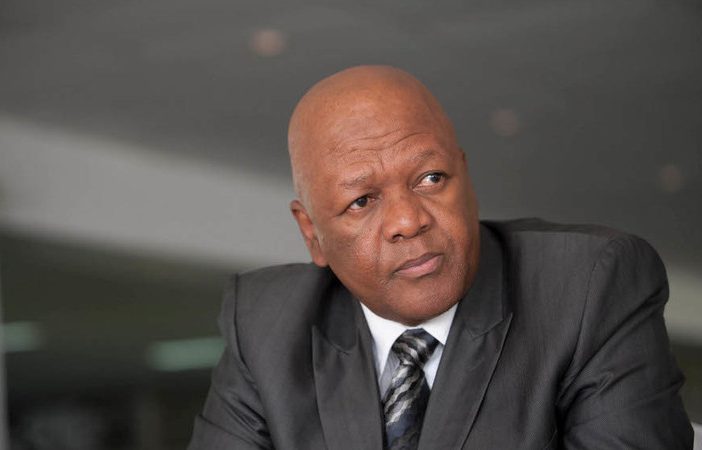- The Minister was at pains to point out that there is no corruption in the Independent Power Producer Program.
- The assertion that Eskom incurs losses as a result of the Independent Power Producer programme is without foundation, misleading and false.
- Eskom is NOT borrowing money for buying the electricity generated by IPPs or for funding the construction of the IPPs.
- Without the contribution by the renewable energy IPPs, the current load shedding would be much worse.
- The 3 year delay in signing the PPAs created market uncertainty which South Africa cannot afford.
- Coal jobs are at risk in South Africa because of plant decommissioning, not as a result of the REIPP Programme.
- Big centralised power generation plants will disappear and replaced by distributed generation, mini-grids and batteries.
South Africa’s Energy Minister called a press conference this morning at Tshedimosetso House, Pretoria to laid down the facts and dispel any public discourse regarding the country’s Independent Power Producer Programme (IPP Programme). The Minister reaffirmed that the renewable energy programme is very successful, above board and plays a major role arresting the high negative impact of fossil fuel sources of energy such as oil and coal.
The Minister was at pains to point out that there is no corruption in the Independent Power Producer Program. “The Government has an established procurement office, the Independent Power Producers Office, under the direction and guidance of the Department of Energy and the National Treasury. This mechanism of procuring the Renewable Energy IPP programme is aligned with the Public Finance Management Act (PFMA),” he said.
“The tender process and the awarding of contracts are fair, open and transparent and the security around the evaluation process mitigates the risks of corruption and interference. The evaluation is conducted in a highly secured environment with video and voice recordings and by a multi-disciplinary team of independent external advisers in respect of legal, technical, financial and economic development disciplines. The evaluation reports are thereafter reviewed by independent reviewers for consistency. In addition, each evaluation process is subject to scrutiny and monitoring by a governance and compliance review team comprised of independent audit professionals”.
“All bidders, evaluation teams, review teams as well as governance audit specialists involved are required to complete extensive declarations of conflicts of interest. Bidders are also required to declare that no collusion took place in the preparation of their bids. If any collusion is found to have taken place, the bids will be disqualified”.
“The final consideration and approval of the Preferred Bidders is conducted by the Bid Adjudication Committee of the Department of Energy (DoE).”
The Minister also pointed out that “Nersa issues a licence to all IPPs based on full disclosure of information required, tariff and tariff escalation. A public participation process scrutinises the tariff before the licence is issued”.
He added that “It is true that the early renewable energy programmes were relatively higher in pricing however, successive bid window prices have consistently declined, especially steep falls recorded from wind and solar PV technologies. The renewable energy IPPs are cost neutral to Eskom as the cost is passed on to the consumer. Procurement through competitive bidding allows for the best available prices at the time”.
“Before Eskom signs the PPAs, the energy regulator, Nersa, will issue an approval for Eskom to enter into the PPAs and confirm in writing that Eskom will be allowed the full associated cost under the cost recovery mechanism. The assertion therefore that Eskom incurs losses as a result of the Independent Power Producer programme is without foundation, misleading and false. Since 2013, Eskom has not incurred a cent in buying electricity from the Independent Power Producers which they have not been able to recover through the tariff allowance”.
The minister also explained that coal jobs are at risk in South Africa, but this is not as a result of the REIPP programme. “Eskom has as early as in the IRP 2010 reported that it will be decommissioning some of the older coal-fired power stations which are reaching the end of their commercial and operational life. According to Eskom, by 2030, 13 000 MW of coal-fired capacity is scheduled for decommissioning”.
“Multi-sectoral interventions by government, labour unions and the private sector can be collectively implemented to reskill affected workers in the coal sector to align their capabilities to participate in industries surrounding their existing areas of work, in order to avoid relocation, while maintaining similar or improved income levels”.
“The REIPP Programme has in a short 8 year period, attracted R209.4 billion in committed private sector investment, resulting in much needed alleviation of fiscal pressure. Black South African equity shareholding in the REIPP Programme has progressively increased with each bidding round. The South African equity shareholding across Bid Window 1 to Bid Window 4 and Smalls Bid Windows 1 and 2 equates to 52% (R31.4 billion) of total equity (R60.9 billion), which is substantially more than the 40% requirement”.
The Minster also pointed out that South Africa’s REIPP Programme’s contribution to climate change objectives can also not be disputed with carbon emission reductions of 33.2 million tonnes (Mton) carbon dioxide (CO2) and water savings of 39.2 million kilolitres achieved by 31 December 2018.
Author: Bryan Groenendaal
Source: Eskom Media Desk















